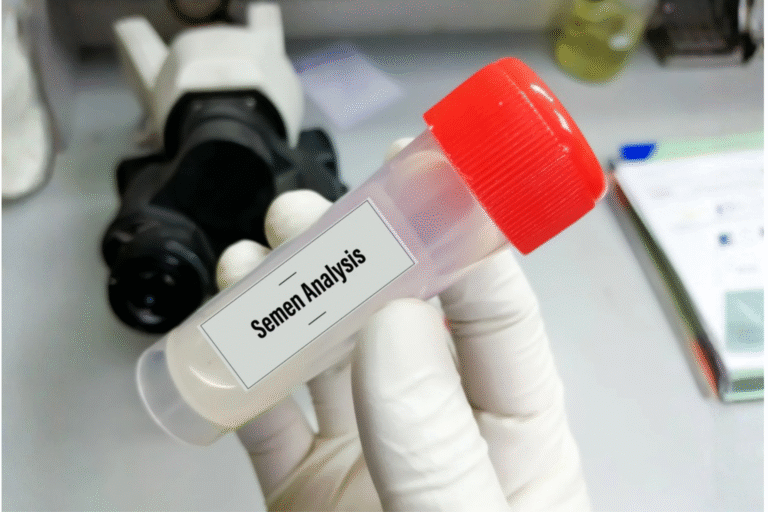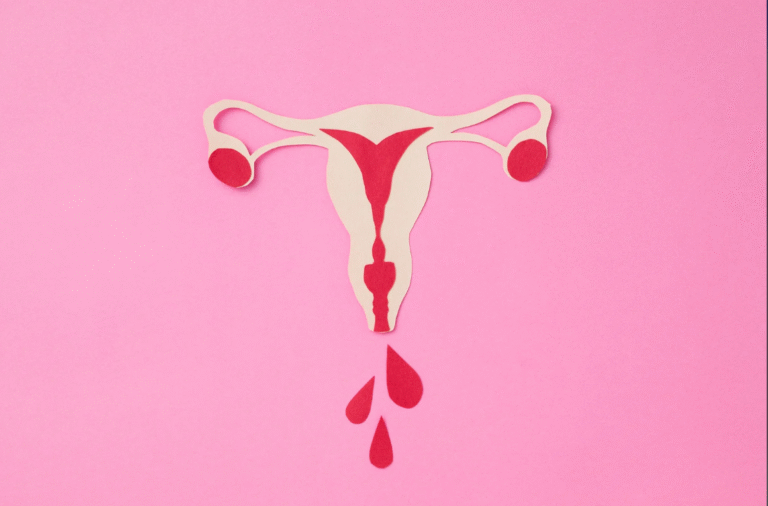Infertility isn’t just a woman’s issue. Read more to learn about male infertility, and why awareness is key to shared hope.
In every consultation room, there’s an invisible assumption — that infertility must somehow be the woman’s “problem.”
But science and statistics tell a different story: nearly half of all infertility cases involve the male partner.
At our clinic, we often remind couples that fertility is a team effort. Eggs and sperm are equal halves of the same dream.
What Causes Male Infertility?
Male infertility simply means the sperm are too few, too slow, or too fragile to fertilize an egg.
The reasons can range from temporary and reversible to complex medical issues.
- Low sperm count (oligospermia) – fewer sperm than normal.
- Poor motility (asthenozoospermia) – sperm that don’t swim efficiently.
- Abnormal shape (teratozoospermia) – sperm that can’t penetrate the egg properly.
- No sperm (azoospermia) – can be due to obstruction or testicular issues.
- Varicocele – enlarged veins in the scrotum that increase testicular temperature.
- Hormonal imbalances – when testosterone or FSH/LH levels are off balance.
- Lifestyle factors – smoking, alcohol, obesity, heat exposure, tight clothing, chronic stress.
- Genetic causes – rare but important to identify early.
Sometimes, despite extensive tests, the report simply says: “Unexplained.” That doesn’t mean hopeless — it only means we haven’t found the story yet.

How Is It Diagnosed?
The first step is simple and non-invasive: a semen analysis.
It checks sperm count, motility, shape, and vitality — a microscopic look into one’s fertility health.
If abnormalities appear, we may suggest:
- Hormone testing (testosterone, FSH, LH, prolactin)
- Scrotal ultrasound to check for varicocele or blockages
- Genetic testing, in certain cases
- DNA fragmentation test, to assess sperm quality beyond count and motility
For many men, these tests not only provide answers but also relief — clarity replaces silent guilt.
Treatment Options
Treatment depends on the cause and severity:
- Lifestyle changes: Weight control, reducing smoking/alcohol, improving sleep, nutrition, and stress management can make a measurable difference.
- Medications: Hormone therapy or antioxidants to improve sperm parameters.
- Surgical correction: Varicocele repair or removal of blockages when needed.
- Assisted Reproductive Techniques (ART):
- IUI (Intrauterine Insemination) – when sperm parameters are mildly reduced.
- IVF or ICSI (Intracytoplasmic Sperm Injection) – when sperm count or motility is very low, a single healthy sperm can still fertilize an egg under the microscope.
- Surgical sperm retrieval (TESA, PESA, Micro-TESE) – for cases where no sperm are found in the semen.
- IUI (Intrauterine Insemination) – when sperm parameters are mildly reduced.
Each option is chosen after detailed evaluation, not as a quick fix but as a scientifically guided next step.

Breaking the Silence
Male infertility isn’t a verdict on masculinity.
It’s a medical condition — like any other — treatable, diagnosable, and common.
When couples share the responsibility of testing, they also share the strength of understanding.
At our clinic, we’ve seen relationships grow stronger when blame turns into teamwork.
Because conception, like love, works best when both sides are seen and supported.
If you or your partner are facing fertility challenges, understanding the male factor is an important first step.
Book a consultation with our specialists to discuss diagnosis and personalized treatment options with complete confidentiality and care.









